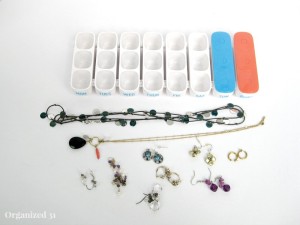Think about your last hotel stay. Indoor pool ... lots of leisure time ... maybe room service ... freedom from housework ... the whole vacation mentality. But what if that hotel room was your home - your only home - for six months?
For the Zorellas of Canfield, Ohio, and other families who have lost their homes from fire and other disaster, hotel living is all the home they get for stretches of time that go beyond a vacation.
The Zorella family lived in a Hampton Inn for six months after their house burned to the ground in 2007. The way that the family coped with the drawn-out life of limbo can probably be summed up by Joyce Zorella's attitude of gratitude.
“The way it turned out, I can’t complain. We had no loss of life.”
The fire
Joyce remembers it as a typical Ohio winter morning. “We had a beautiful fire in the fireplace,” she recalls. Her husband was at work, her daughter was away, and her 15-year-old son was on the couch in front of the fireplace.
“He came up to tell me that smoke was coming from the fireplace,” Joyce said. “I thought it was just a minor venting problem and that it would go away.” A few minutes later when she got downstairs, there was more smoke, so she opened the patio door to air out the room. At that moment, the roof collapsed.
The fire had been raging inside the walls of the house due to a faulty fireplace. Joyce and her son had just enough time to call 911 and run out the door with their dog, carrying nothing with them. The fire department arrived quickly, but the hydrants were frozen. “We had to stand there and watch as our house burned,” Joyce said.
She recounts heartbreaking details about the fire - keeping her son from trying to go back into the house to get a suit he planned to wear to a school dance that night, realizing every family photo was gone, every memento, watching flames engulf their home and everything they owned - and then she says something unexpected: “We feel lucky,” a mantra she repeats throughout her story.
Hotel living
The family stayed with Joyce’s mother for about a week and then they chose a two-room suite at the Hampton Inn as their temporary home while a new house was being built for them.
“I cried when we first got there,” Joyce said. Six months later, she cried when they left the hotel. “They had become like family to us.”
Karen Naffah, who runs the Hampton Inn & Suites, where the Zorellas lived, said she and her staff try to make the hotel an extension of the families' homes.
"We bake cookies at 4:00, we learn all their names and what they are interested in. We have the TV in the lobby on the stations that their children would watch after school," Naffah said. "If it's the holidays we make sure every family has tree time for opening gifts."
They may not be the only hotel to offer such services to long-term guests, but Naffah said, "We do go the extra mile. Our staff rocks that mid-America hospitality!"
The challenges
Despite extra TLC, there are challenges to hotel living, including eating at restaurants every meal, every day. “Your digestive system has to adjust to that,” Joyce laughed. “And then it has to adjust back to home cooking after six months.”
Second only to having no kitchen was having little space. “Especially when we started to buy things to replace what we had lost,” Joyce said. “And then we started to buy things for our new house and there just wasn’t anywhere to put all of it.”
Her son lived part of the time with his girlfriend’s parents, which solved some living space issues at the hotel, but split up the family.
“Mother’s Day was hard,” Joyce recalled. Also much of their time was spent choosing things for the house, which cut into family time.
Laundry was another issue. The hotel had one washer and one dryer, but they seemed to be always in use, so the family used the laundromat. “Carrying your dirty underwear thoughts he lobby was a weekly event,” Joyce said, laughing.
The family lost their dog, an 8-year-old shitzu, when they gave her to a foster family during their hotel stay, and the foster family gave a fake address and disappeared. “So we saved our dog from the fire, only to lose her to a scam artist,” Joyce said.
Looking at the bright side
 |
| The Zorella Family |
There were wonderful amenities at the hotel, Joyce said. The lobby was the Zorellas’ living room “and we always had company,” she said.
Advice from the Red Cross
Disasters are upsetting experiences for everyone involved. Children, senior citizens, people with disabilities and people for whom English is not their first language are especially at risk and are likely to need extra care and help, according to Valerie Cole, manager of Disaster Health Services and Disaster Mental Health for the American Red Cross.
The Red Cross has this advice for those who are faced with long-term temporary living:
* Eat healthy. During times of stress, it is important that you maintain a balanced diet and drink plenty of water.
* Stay connected with family and friends. Giving and getting support is one of the most important things you can do. Try to do something as a family that you have all enjoyed in the past.
* Be patient with yourself and with those around you. Recognize that everyone is stressed and may need some time to put their feelings and thoughts in order. That includes you!
* Set priorities. Tackle tasks in small steps.
* Gather information about assistance and resources that will help you and your family members meet your disaster-related needs.
* Stay positive. Remind yourself of how you’ve successfully gotten through difficult times in the past. Reach out when you need support, and help others when they need it.
Joyce’s advice
* “Choose your hotel wisely. The staff at our hotel became friends and then became family.”
* “Keep the family close. Something like this bonds you, because you’re in it tougher.”
* “Try to make it as an adventure. It’s not going to last. Make the best of it.”
 |
| After their new home was built, a friend had this blanket made for the Zorellas, showing their old house and their new house. |




















